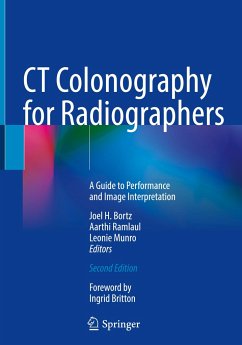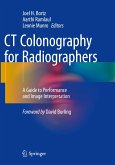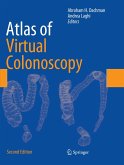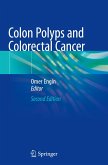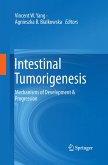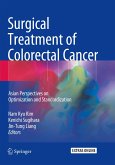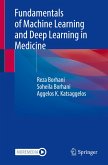This second edition, comprising 28 chapters, explains every aspect of the role of radiographers in performing CT colonography (CTC) and interpreting CTC images with the aim of enabling radiographers to extend the scope of their practice. It provides information required with respect to communication with the patient, procurement of informed consent, the principles of CT as well as dual-energy CT and photon counting CT, radiation dose, patient preparation and positioning, the use of contrast media, the performance of diagnostic and screening CTC studies, the interpretation and reporting of images, legal and professional requirements, and the importance of clinical audits.
A wide range of CTC findings is described and depicted, covering normal anatomy, artefacts, haemorrhoids, polyps, colon cancer, diverticular disease, lipomas, extracolonic structures, opportunistic screening for osteoporosis and metabolic associated fatty disease, and CTC in incomplete or failed colonoscopy. The role of other modalities such as ultrasound, magnetic resonance imaging, and nuclear medicine in colorectal cancer patients is discussed. In addition, the text covers the role of artificial intelligence and machine learning in imaging of the colon for the detection of polyps, diagnosis and staging of colorectal cancer. Lastly, a chapter focusing on self-assessment of image interpretation will aid learning.
This book provides the support that radiographers need in order to perform CTC studies to the standard required in terms of advances in imaging and interpretation of images.
A wide range of CTC findings is described and depicted, covering normal anatomy, artefacts, haemorrhoids, polyps, colon cancer, diverticular disease, lipomas, extracolonic structures, opportunistic screening for osteoporosis and metabolic associated fatty disease, and CTC in incomplete or failed colonoscopy. The role of other modalities such as ultrasound, magnetic resonance imaging, and nuclear medicine in colorectal cancer patients is discussed. In addition, the text covers the role of artificial intelligence and machine learning in imaging of the colon for the detection of polyps, diagnosis and staging of colorectal cancer. Lastly, a chapter focusing on self-assessment of image interpretation will aid learning.
This book provides the support that radiographers need in order to perform CTC studies to the standard required in terms of advances in imaging and interpretation of images.

